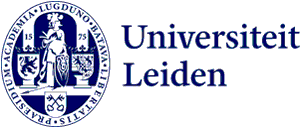Students' experiences

Mattis
Bachelor(s): International Psychology and Business Economics
University: Erasmus Rotterdam
Hobbies: Basketball, cooking, stand-up comedy
'The programme is about bringing motivated and interested students from various faculties and universities together and encouraging dialogue. This mostly happens around the topic of sustainability, but not exclusively. A big part is learning new skills in communication, critical thinking and problem solving. We had lectures, but also tackled real-world challenges and worked with companies in Delft, the Hague or Rotterdam.'
'I valued the more practical things'
'I valued the more practical things. For example, how to communicate scientific topics to a non-scientific audience, capture and hold attention, or show social resistance. These lessons were often connected to personal stories from guest speakers, which made both sustainability and the life of a scientist feel more real.'
'To my surprise, the programme was easier to combine with my studies and personal life than I had expected. If you are open-minded and curious to learn more, it is a great option for you! You will learn a lot about how to tackle problems in a structured way, how to work effectively in a team, and how to present solutions to caseholders. These skills go beyond a regular bachelor’s and give me more confidence in myself.'
Video: student introduce their projects
Due to the selected cookie settings, we cannot show this video here.
Watch the video on the original website orWassim
Bachelor: Architecture
University: Delft University of Technology
'My intention was to get the most out of my studies, that’s where it all started. I also wanted to get to know people outside my own study programme and university. Plus, I wanted to do something that would have a real impact, not just engage in theory.'
'We were taught by lecturers and professors from all three universities, so we got to hear different perspectives, which was really interesting. In the theoretical part you learn about the subject and attend workshops on skills like research ethics and systems thinking.'
'I wanted to make a real impact - not just engage with theory'
'I worked on the case of network operator Stedin, commissioned by the Strategy and Regulation department. I collaborated with students from the two other universities and looked how Stedin can encourage companies to transition from gas to electricity. Stedin presented us with a difficult issue, about which we all had little knowledge. That's what made it an interesting challenge.'
'The principle in our group was that you didn't have to stick to your own field of study. That was really fun. As engineer I also had to think about the social aspects. I really learned a lot, I feel like I have a knowledge advantage now. Recently, we discussed new energy solutions at my own programme. I thought: don't they know the grid is full in South-Holland? You should first analyse the system before you design a solution. I learned that during the programme.'

